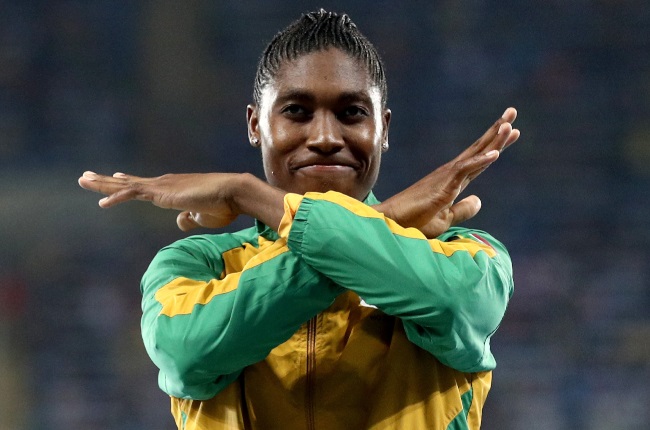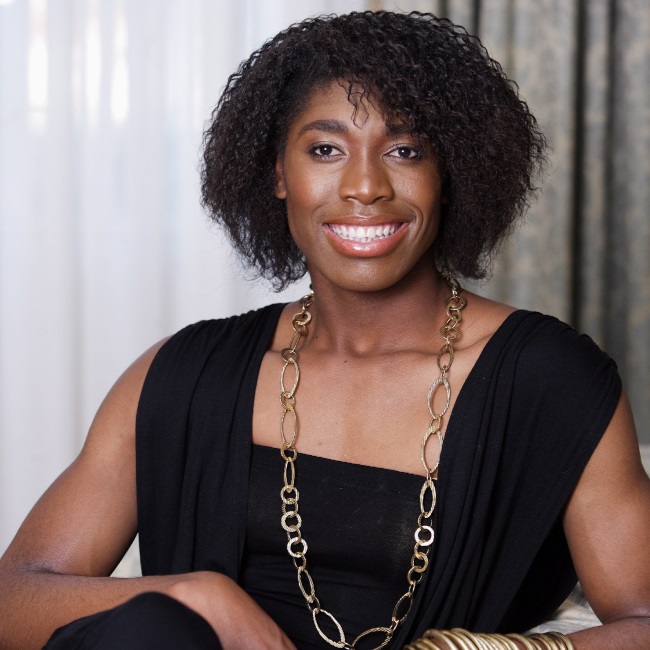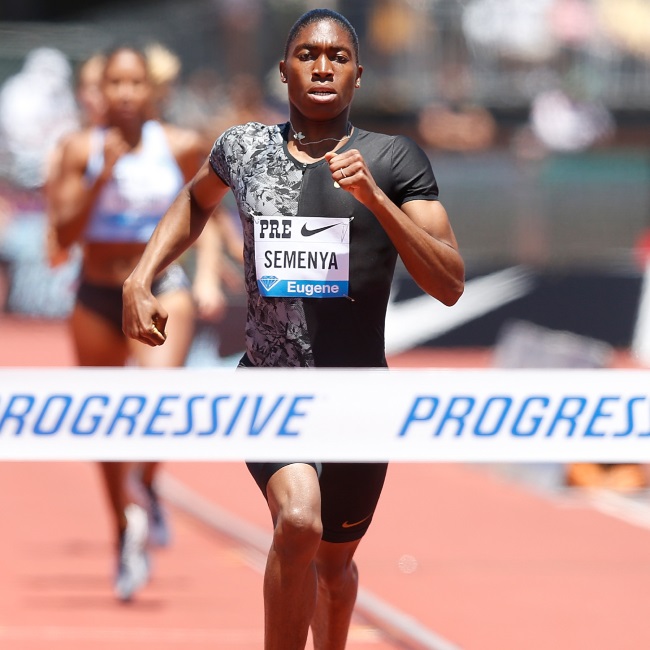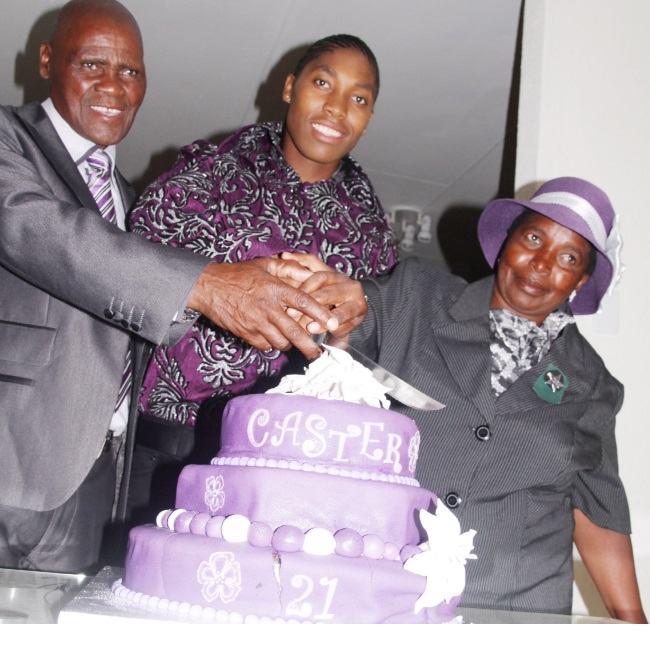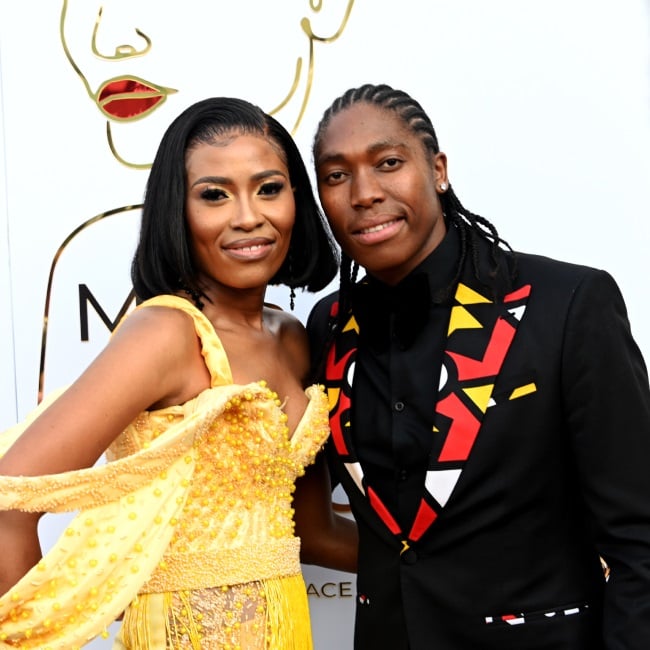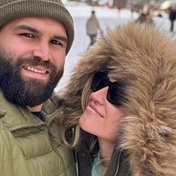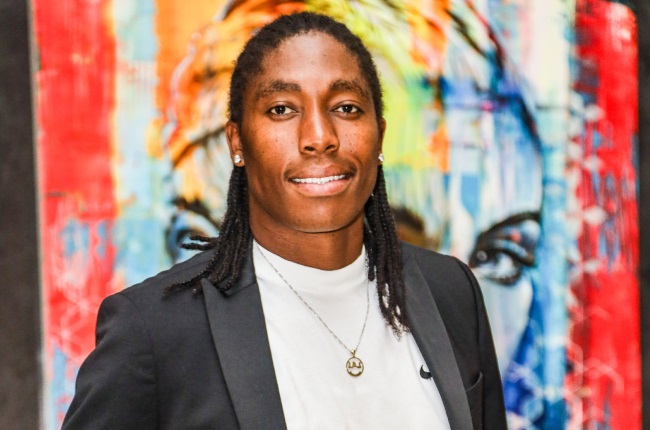
Her outfit is all business – black pants, white shirt, smart jacket, shiny brogues. It’s Mokgadi Caster Semenya as the world has come to know her: no fuss, no nonsense, confident and cool.
The Caster who meets us today is also quick to laugh and eager to talk, a woman who’s been through so much but is content with where she is in the world.
She may have been banned from competing in the races she dominated for so long but she’s in a good space – happily married, a devoted mother, an athlete determined to give back to the sport that’s made her so successful.
READ MORE| Samantha Els opens up on how she had to persuade her dad, Ernie Els, to pursue her rugby career
But the reason she’s here today isn’t because of athletics – it’s because her eagerly anticipated memoir, The Race to Be Myself, is about to be released.
She’s excited about the book, the 32-year-old running sensation says, chatting to us at Kream restaurant in Brooklyn, not far from the University of Pretoria, where she and her wife, Violet Raseboya, coach aspiring young athletes.
“Sport has always been my life,” she says.
And sport dominates her memoir, tracing her life from her childhood in Ga-Masehlong village in Limpopo through to her trailblazing battle to compete on her own terms.
There’s also a chapter that unpacks her decision to do a photoshoot with YOU in 2009 when she’d just started making waves internationally.
The images of Caster – in metallic tights, shimmering tops, dresses and stilettos, her cornrows covered by a curly wig and her face in full makeup – caused a stir.
Critics claimed she’d been coerced into presenting an inauthentic feminised version of herself but Caster says that’s far from the truth.
She was keen to do the story, she says. “My first thought was, ‘Okay, yes. Let’s have some fun’,” she writes.
“I had left my village only six months before winning the world championship. I’d always wondered what I’d look like, what it felt like to wear clothes like these.”
She’s the one who makes choices for herself, Caster says. “I own it. I have the power to decide.”
Power is a word synonymous with Caster.
She’s one of the greatest athletes ever to run the 800m and she has the medals to prove it, including two Olympic golds and three world championships titles.
But the power that propelled her to the finish line also raised questions.
Her naturally high levels of testosterone were seen to give her an unfair advantage, and a long and bruising battle began.
Caster was classified as having differences in sexual development and her fight to compete in the 800m, 400m and 1 500m ended when the International Association of Athletics Federation ruled she couldn’t compete in her favourite distances unless she took hormone-reducing medication.
She could run in the 5 000m but the distance is not her forte.
The last time she put foot on a competitive track was in 2022 when she ran the 5 000m at the World Athletics Championships in the US. She failed to advance to the finals and her international career ground to a halt.
“I wasn’t banned because I was caught doping or cheating,” she says.
“Rather, I’m no longer allowed to run those distances because of a biological condition. I was born with it and I refuse to take unnecessary drugs to change.”
But the disappointment hasn’t dimmed her pride in her achievements. The medals she won are always in plain sight in her room and help to keep her motivated.
“My medals aren’t in a safe,” she says. “They have to be next to me – they’re like my babies.”
Caster’s globe-trotting running days may be over but she has many meaningful ways of filling her life now.
Family are first and foremost.
She recently went home to Limpopo to bury her grandmother, Mmaphuti Sekgala, of whom she speaks warmly in her memoir.
Mmaphuti passed away before she had a chance to read her granddaughter’s book. Caster believes she would’ve been proud.
During her trip home she spent time with her parents, Dorcas and Jacob, to whom she’s very close. “They’re my life,” she says. “Often I check on their wellbeing because at the end of the day my situation had a big impact on them. It impacted everything.”
Her parents are proud of her resilience and determination to remain true to herself. “[When I started my career] I told my parents how things were going to unfold. That this is how I’m going to live my life. That I’m going to be in sports, that I’m going to be a superstar.”
When the cloud of controversy settled over her they supported her, questioning why their daughter had to be subjected to so many humiliating tests when she’d done nothing wrong.
Caster had another pillar to lean on too: Violet, the woman who has been by her side every step of the way.
READ MORE| Kgothatso Montjane reflects on winning two Grand Slams in one year: ‘It came as a surprise’
Violet, who’s also an athlete, married Caster in a lavish ceremony in December 2015 and the couple are now parents to daughters Oratile (4) and Oarabile (2), who were born via IVF.
They aren’t planning to have more kids, Caster says. Two is enough.
“I’m enjoying parenthood. The kids are keeping me busy and every day is a learning curve. They teach you how to be a good parent and help you to think about how you deal with everything in life.
“I can’t say being a mother is a challenge because I decided I was going to be a parent and I was ready for anything that comes with it. That’s the learning curve – I’m learning how to be someone’s parent. I’m learning how to nourish and grow someone.”
She says the simple things that come with being a mom – like making food for the kids or treating them to ice cream or toys – make parenthood “beautiful”.
“I don’t understand when a mother tells me things like, ‘These kids are annoying me’. I’m like, ‘Why bring them into the world if they annoy you?’”
Children need guidance, Caster adds. “You want them to live with dignity, to understand the principles of life.”
Caster is pouring her energy into coaching athletes at The Caster Semenya Training Group at the University of Pretoria and helps develop young people from disadvantaged communities via her Caster Semenya Foundation.
“[The athletic authorities] can take me away from running,” she says. “But they can’t take me away from sport. I’ll never retire. I’ll die as an athlete.”
The Race to Be Myself: A Memoir by Caster Semenya, published by W.W. Norton & Company, R649 at takealot.com




 Publications
Publications
 Partners
Partners





